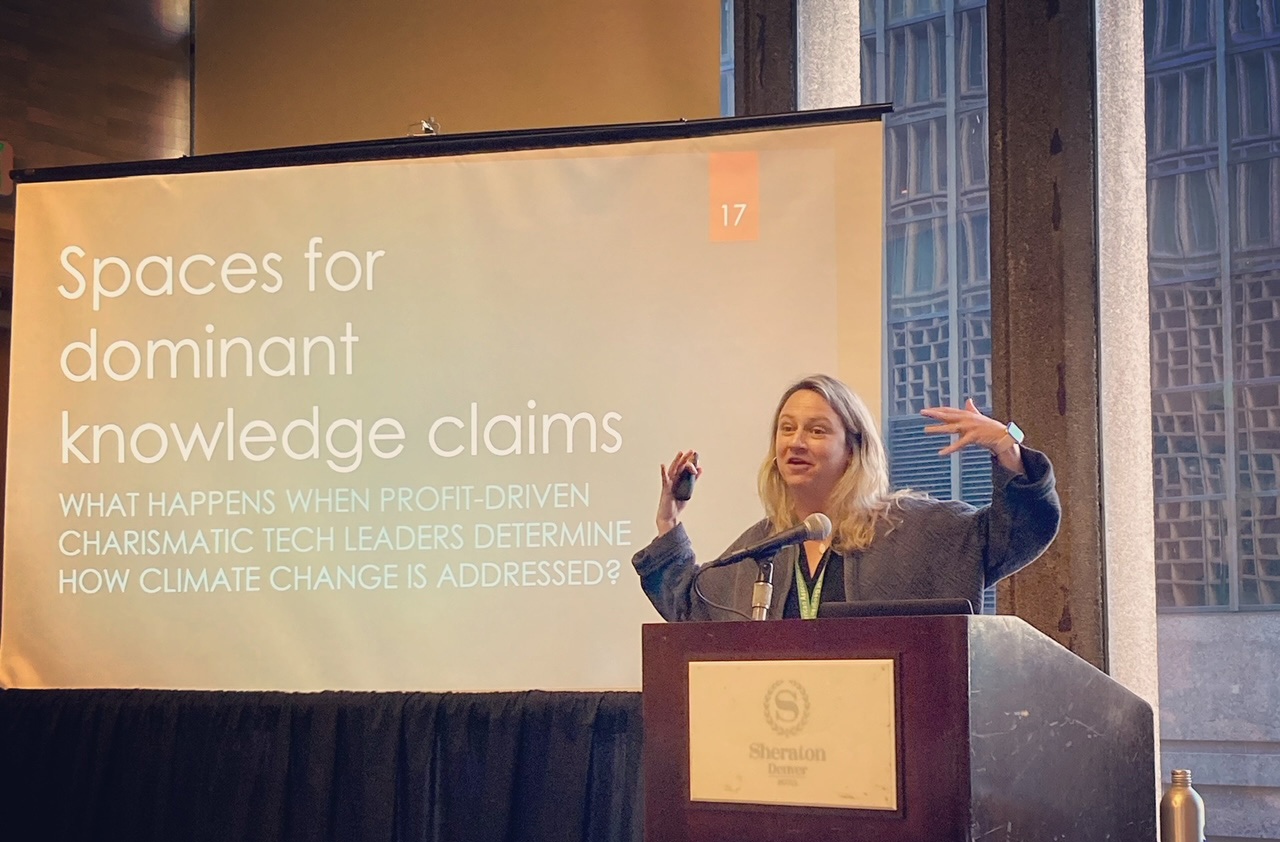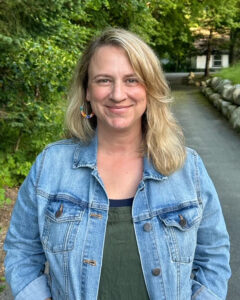
Colorado State University has announced the appointment of Lauren Gifford as the new associate director of the Soil Carbon Solutions Center. Gifford, a human environment geographer specializing in political ecology, brings a wealth of expertise and a deep passion for addressing the climate crisis to her role.
Political ecology studies the idea that uneven social and power relationships contribute to environmental change, said Gifford, who has particular expertise in carbon markets and offsets, climate finance, climate tech and processes of the United Nations Framework Convention on Climate Change. One of Gifford’s primary research interests lies in the intersection of technology, society and climate change.
She is part of the Transformation Working Group for the Earth Commission — a global team of interdisciplinary scientists working to establish scientific guardrails for Earth’s life support systems. As a co-author on the first study quantifying Earth System Boundaries, published in Nature in May, Gifford places emphasis on incorporating concepts of justice, access and distribution into these transformations to ensure that climate solutions do not leave marginalized communities behind.
“The full potential for soil-based climate solutions cannot be met without understanding the socioeconomic systems within which these solutions are being developed and implemented,” said the center’s executive director Jane Zelikova. “Lauren works at the nexus of climate change science, markets and social systems and her interdisciplinary approach is critically needed as we leverage CSU’s science to inform and support the scaling of soil-based carbon removal.”

Entering a new era
It’s a critical moment for soil carbon science and policy, Gifford said.
“Soil carbon markets are expanding rapidly without strong oversight,” she added. “So, it’s a moment of opportunity. But also, the stakes are high, so you want to make sure you do it right. We want to make sure science is part of the dominant discourse.”
One of the reasons for this rapid expansion is the increasing role that non-state actors are playing in the climate governance space.
“There’s an incredible amount of venture capital coming into this space,” said Gifford, noting the Bezos Earth Fund or tech companies as examples. But these industries are looking to make a profit. “This tech ethos of ‘move fast and break things’ is really scary when the planet is the object of inquiry.”
In the mission of putting science first, Gifford’s expertise in climate-tech and carbon finance as well as her long-term, institutional knowledge of carbon markets will be an important addition to this new leadership role at the center.
Latest priorities at the Soil Carbon Solutions Center
Gifford’s arrival at CSU coincides with an exciting phase for the Soil Carbon Solutions Center. The center aims to become a leading authority in nature-based climate solutions, fostering diverse scientists and practitioners in the field, and serving as a clearinghouse for research and data on soil carbon management.
Some of the latest priorities at the center include:
- Launching a consortium to provide access to ecosystem data and models that can be used to forecast the broader impacts of different agricultural management approaches on soil carbon and soil health.
- Creating a help desk at the CSU Spur campus to serve the broader community on issues in agricultural soil management and climate mitigation and adaptation in Colorado and beyond.
- Helping Colorado agricultural producers navigate the shifting opportunities around soil health and carbon programs, including carbon markets.
- Providing initial analyses on how different agrivoltaic installations impact soil carbon and broader ecological outcomes. This work is a collaboration with the University of Pennsylvania, Pivot Energy, and the Colorado Solar and Storage Association.
“The biggest challenge facing the SCSC currently is lack of capacity to provide support and guidance to all the entities who come to us, from agricultural producers who are trying to navigate carbon market opportunities, to companies who need access to data and tools being developed at CSU,” Zelikova said. “With Lauren onboard, we greatly expand our capacity to provide a range of decision support.”
Moving forward with science first
Gifford emphasized the importance of science-first knowledge claims and accurate critique to ensure that soil carbon markets are implemented ethically and effectively.
“There’s still a big question about how we incorporate increased soil carbon sequestration into market mechanisms and how do we do that in a way that doesn’t cause harm to farmers, to farm workers, to communities, to food production?” she said. “And the big question of whether or not financial mechanisms are even the right way to do that.”
Gifford’s presence will also strengthen CSU’s ecosystem science and sustainability department, as she takes on the responsibility of teaching climate policy and contributing to the development of the carbon management certificate program.
“As the land-grant university, CSU sees the value of having students and faculty and research scientists understand the financialization of nature and how that’s changing the way we manage land,” Gifford said.
The Soil Carbon Solutions Center will continue to build capacity and programing, helping CSU lead the way in advancing science-based soil carbon solutions, fostering equitable climate outcomes, and shaping a sustainable future for both our planet and its communities.